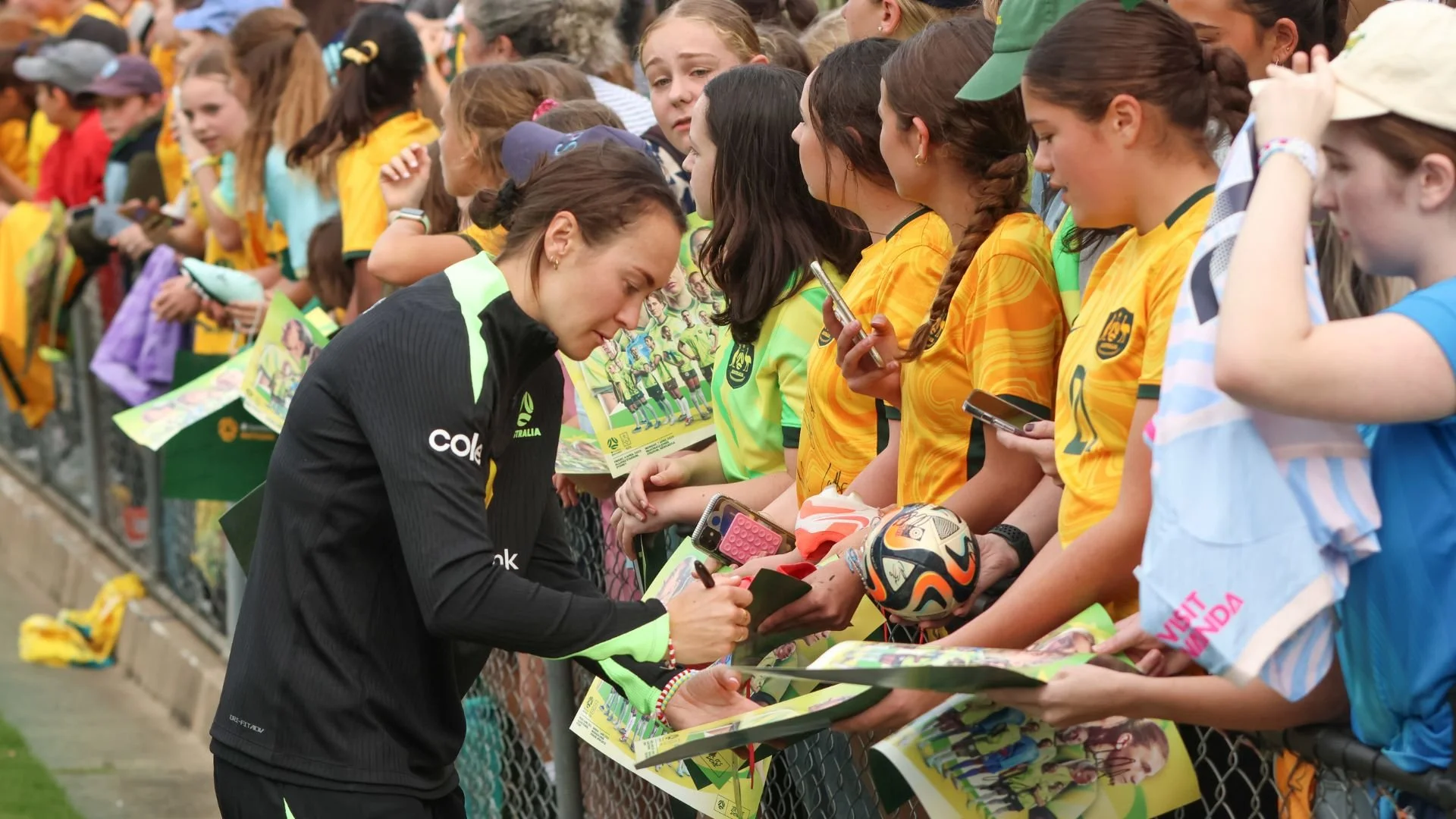Kmart for Football: The danger of treating the football tribe like a transaction
Credit: Tom McCarthy
FSAA Deputy Chair, Blayne Treadgold explores the crucial difference between a customer, fan and a truly invested supporter. As we look back to assess the legacy of the 2023 Women’s World Cup, the question remains: how the hell did we squander our biggest chance to convert new fans into rusted-on football supporters?
Back in 2022, Football Australia launched their ambitious One Football Strategy for 2022-2026.
Key pillars for the strategy include: Participants and Clubs, Elite Teams and Pathways, Fans, and Unifying Football. Arguably all very worthwhile areas of focus.
While fans and supporters are often acknowledged verbally, it is encouraging to see Football Australia recognise the integral role of fans and supporters so concretely in such a document.
So what is a fan? What is the difference between a fan and supporter? What are the characteristics, habits and customs of each? Is there any difference at all?
It’s been a topic of conversation at many FSAA committee meetings, going all the way back to the initial formation of the association. Including discussions regarding the all-important association title.
While some will dismiss the nature of the question or claim that it’s being too pedantic or exclusive in regards to the terminology, I’d argue that a key pillar of any such strategy should be very clearly defined.
Many examples highlighted the levels of investment in time, emotion, effort, financial resources spent by supporters over fans. Other words used included active, connection, buy-in and priority.
That’s not to say that fans don't do any of these things, but it pertains to the quantification of resources spent and of course the frequency.
“While fans and supporters are often acknowledged verbally, it is encouraging to see Football Australia recognise the integral role of fans and supporters so concretely in such a document.”
For the record, some said they didn’t really see a difference, and yes others argued it was being pedantic.
Over the years, I’ve heard many marketing and business types refer to fans and supporters simply as customers, and under the current private-ownership franchise model that we see in the A-League, it’s hard to disagree.
Fans simply pay their money for a product, they receive that product and that’s that. It’s like Kmart but for football. The more customers, the more money, the better the profit. It’s Business 101 right?
However, this narrow-minded view fails to acknowledge the human instinct and tribalism that fans and supporters develop for the team in which they support.
It dismisses the club identities, emotional investment, social connection and the collective causes and history found within football communities be it at a grassroots, domestic or international level.
I’m sure there's many passionate shoppers out there but I’m not sure the last time anyone spent hundreds of hours making banners, singing songs, forging lifelong friendships, building communities, volunteering or dedicating a lifetime of emotional investment at the local Kmart.
It’s this view of fans and supporters that I’d strongly warn football administrators against adopting, especially when there’s a Big W or Target down the road.
When I think of a fan, I think of someone who displays favour, admiration and support for a particular team. Afterall, Fan is short for fanatic but like many different words, nuance and interpretations evolve.
As for supporters, I believe this is much more holistic. Supporters support right? They support their team, their club, their players and their community and they make it a priority in their lives to do so.
Credit: Texi Smith
More importantly, they support the game and those within it. They provide support emotionally, physically, financially and spiritually.
Mums, Dads and guardians who drive little Suzie and Johnny to training and pay exorbitant playing fees for the privilege? Club volunteers that show up each and all Saturday morning to paint lines on the pitch and cook the sausage sizzle. They’re supporters too, right?
Why? Because they invest time, money, emotion and effort into supporting the game and they make it a priority.
One of the buzzwords in Australian football is ‘stakeholder’—a term used so often ad nauseam that it has lost much of its meaning and lacks any real description of importance or hierarchy.
Fans and supporters are told constantly that they are an important stakeholder. I’d go one step further and state that fans and supporters are THE most important stakeholder. Without them, we don’t have a professional game, full stop.
By all metrics, the 2023 FIFA Women’s World Cup was as successful as any event we’ve ever seen in this country. Record crowds and viewership led to a passion for the game we’ve seldom seen.
But has this translated from a wave of new 'fans' into a generation of 'supporters' in other parts of the game?
Released just this week, the 2024-25 PFA A-League Women Report provides a stark answer.
It revealed that average ALW crowds fell by 26% in the 2024-25 season, as the post-World Cup "buzz wore off."
This is the predictable result of squandering the chance to convert new, casual fans into long-term, rusted-on supporters.
The PFA's research also highlighted why. Fans who fell in love with the elite, professional Matildas perceived the under-resourced, part-time A-League Women as an "afterthought."
This is the exact danger of the 'customer' mindset. A customer consumed the elite 'product' (the World Cup), but the reality is we failed to offer a compelling next step.
As the PFA report shows, the under-resourced "afterthought" we presented gave them no reason to stay and invest.
Two years on from the World Cup, the challenge to convert those millions of new Matildas’ fans into rusted-on football supporters clearly remains.
Whether that’s for the national teams, an A-League club, or a local grassroots side, the work is far from over.
We must stop treating them like shoppers and finally give them a reason to join the tribe.



